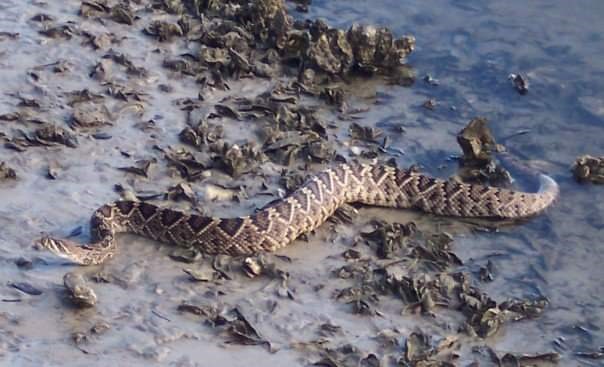
NPS As their name indicates, eastern diamondback rattlesnakes have a distinctive diamond pattern down their back and a “rattle” at the end of their tail used to warn off others when threatened. The rattle is made of hard, hollow segments that can easily break off and regrow when the rattlesnake sheds. If you are walking and hear the rattle, that’s how you know to keep an eye out and avoid contact! While some humans may be wary of this snake, they provide a lot of benefits. Eastern diamondback rattlesnakes are ambush predators and prey on small mammals and birds that walk nearby. Rattlesnakes are known as natural exterminators, feasting on household pests like rats and mice. Rattlesnakes will strike to release venom into its prey and let it go, pursuing it once it has died. Due to their size, rattlesnakes do not have any natural predators. The major threat to this species is human influence. Indiscriminate killing due to fear, habitat loss, and urbanization have been linked to a decline in population numbers. Currently, eastern diamondback rattlesnakes are not threatened or endangered, but their habitat does provide a home to many different species that are threatened and should be protected. If you find a rattlesnake in the wild, DO NOT PANIC! Eastern diamondback rattlesnakes do their best to avoid confrontation with humans and will often slither away if encountered. They are not aggressive and will only bite when threatened. Bites can be fatal to humans if not treated, so it is best to use caution when out in the brush of Florida where rattlesnakes are known to live. Always check before you step when walking over stairs, downed limbs, or rocks. Most importantly, leave any snake you find in the wild alone and appreciate them from a distance. |
Last updated: June 11, 2021
